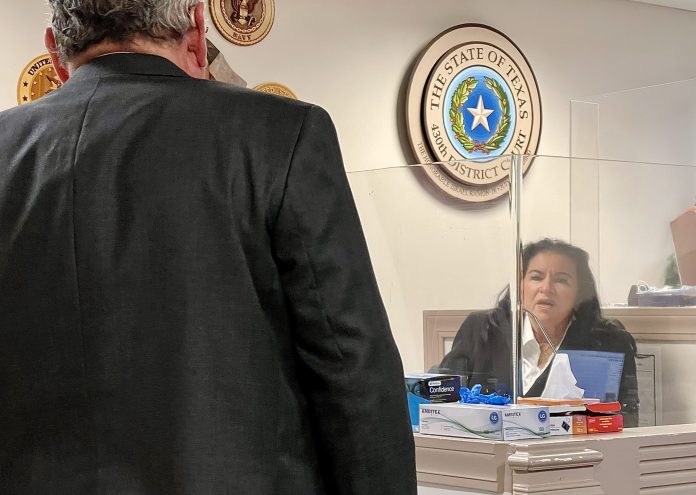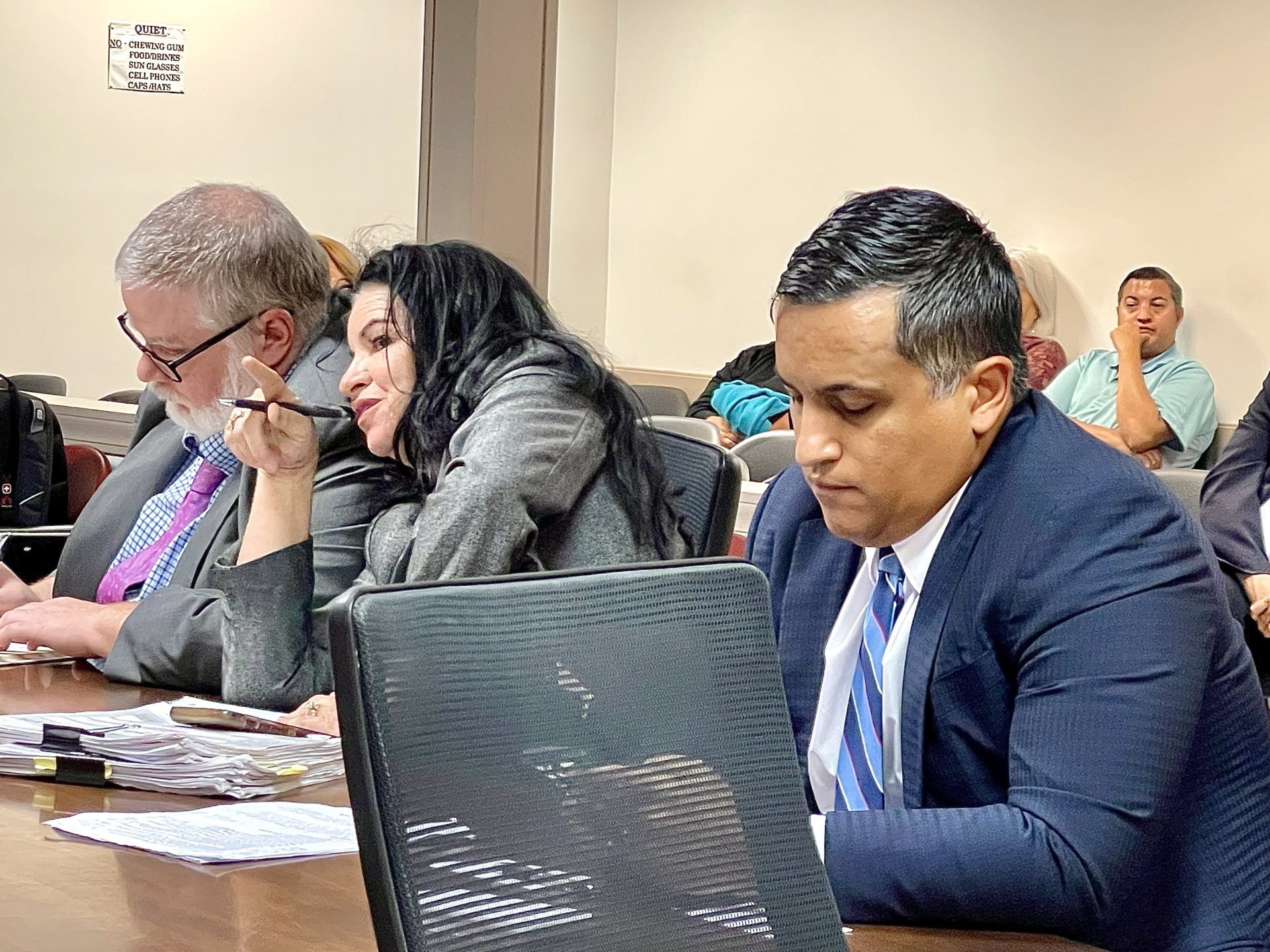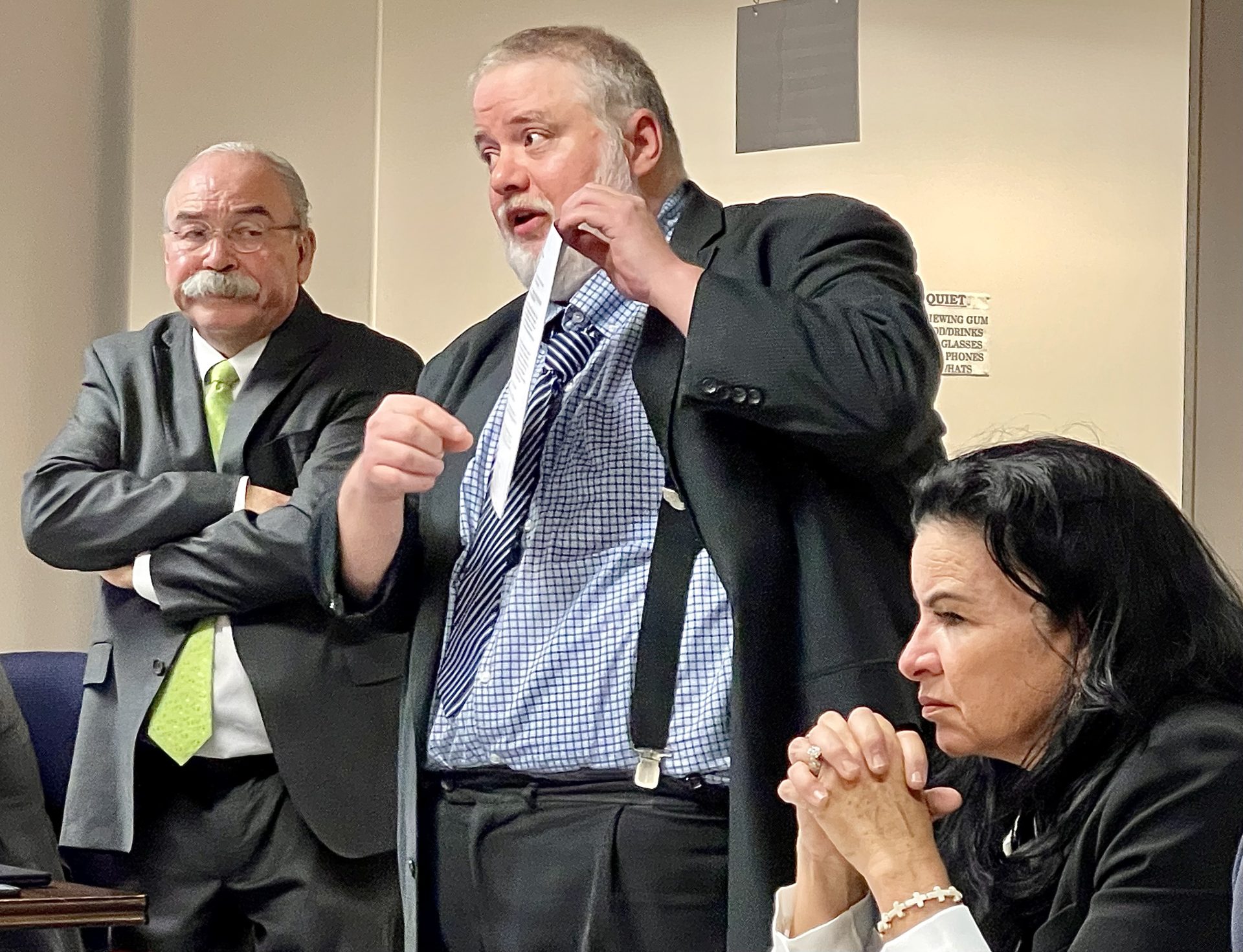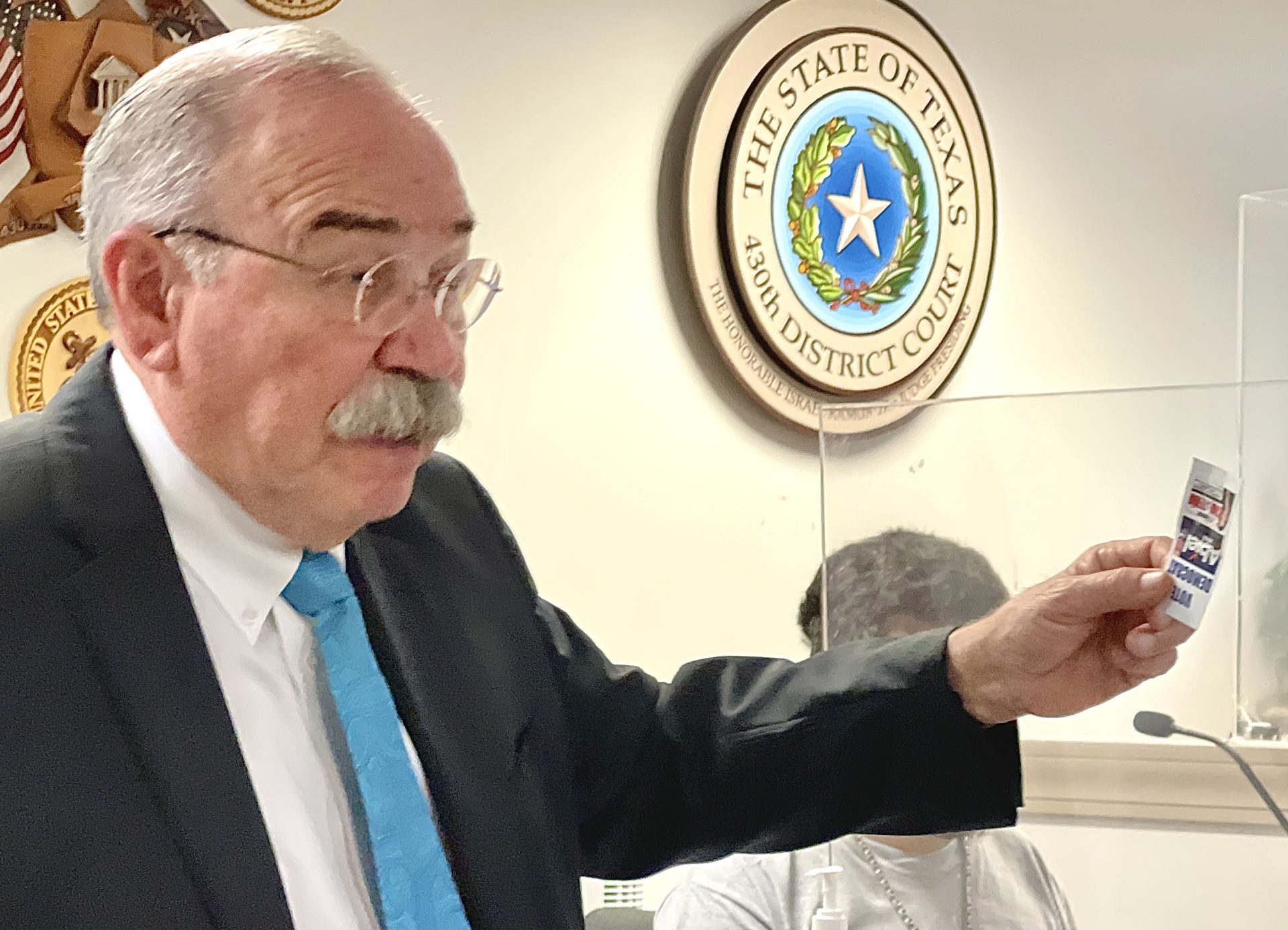
|
Only have a minute? Listen instead
Getting your Trinity Audio player ready...
|
EDINBURG — Confusion swirled early Thursday afternoon after the judge presiding over the Hidalgo County Precinct 3, Place 1 election contest trial seemed to have abruptly made a decision to declare Ramon Segovia the true winner of the May 28 Democratic Primary runoff.
The three-page order, which came down just before 11 a.m., begins with a legal analysis for disqualifying certain witnesses that Sonia Treviño, the incumbent who won the runoff by just 31 votes, sought to have testify.
But near the end of the ruling, that legal analysis abruptly shifts to a finding that enough votes had been disqualified and subtracted from Treviño’s vote tally to change the election outcome.
“(T)he court HEREBY DECLARES Ramon Segovia the winner of the May 28, 2024, Hidalgo County Justice of the Peace, Precinct 3, Place 1, Democratic Primary Run-off Election,” the order reads, in part.
“This is a final judgment, disposes of all parties and all claims and is appealable,” the order further reads, followed by Bañales’ handwritten signature.
But it was all a mistake — one that is now proving costly for Segovia and his legal team, who thought they were vanishingly close to victory.
The order that Bañales signed just before recessing court for lunch had been filed in error by Segovia’s legal team, according to Gilberto Hinojosa, the lead attorney representing the election challenger.
Segovia’s legal team had filed a motion to exclude the bulk of Treviño’s witnesses. That prompted about two hours of argument from both sides Thursday morning, Hinojosa said.
Afterward, Bañales sided with Segovia. He issued an oral ruling that Treviño’s proposed witnesses be excluded. He further directed Segovia’s attorneys to file a written proposed order stating as much.
But the first draft of that document had a typographical error on the signature line, which Bañales caught and asked to be corrected, Hinojosa explained. That set in motion a disastrous domino effect.
“The legal assistant that drafted it, he accidentally included the last page, which was a proposed judgment that we were gonna file in case (Treviño’s attorneys) rested today,” Hinojosa said.

For the sake of judicial efficiency, attorneys often submit proposed orders containing language that a judge may sign without changing, or that they may use as a template that they modify.
Bañales had asked Segovia’s attorneys to submit a written document that reflected his in-court oral decision.
But somehow, language from another proposed document — one Hinojosa and his team had hoped to file in the event they won the case — made it into the proposed order regarding witnesses.
Hinojosa and his team caught the error, but only after the judge had already signed the document and filed it with the clerk’s office.
Before the trial broke for lunch — and while Treviño’s attorneys were still in the courtroom — Hinojosa alerted the judge to the error.
About an hour later, Segovia’s attorneys filed a “corrected” proposed order devoid of any language regarding who may or may not have won the election.
But by then, the snafu had already prompted Treviño’s attorneys to call for Bañales to remove himself from the trial.
“That stops everything,” Hinojosa said.
As court was set to return from lunch, the two political candidates, their coteries of lawyers, and several eager spectators milled about in the vestibule of the 430th state District Court waiting for the doors to be unlocked.
Finally, the bailiff let everyone inside just after 2 p.m.

“Your honor, we filed a motion to recuse this … afternoon at about 1 o’clock and we make an oral motion for you to recuse right now,” Martin Golando, the San Antonio-based attorney representing Treviño, said.
“I’ve never done this before,” Golando added.
“Alright, so all proceedings are suspended pending further orders,” Bañales replied.
What will follow next is an administrative procedure whereby the 5th Administrative Judicial Region — the same body that assigned Bañales to preside over the trial — appoints another judge to hear arguments over whether he should now be removed.
Hinojosa, the attorney representing Segovia, doesn’t think that’ll happen.
Instead, he called Treviño’s attempt to disqualify the judge who earlier disqualified her attorney, Rick Salinas, nothing more than a delay tactic.
“Their whole strategy in this election contest is to delay, delay, delay because they’re hoping that we can’t get a final decision before it’s gotta be certified through the secretary of state,” Hinojosa said.
He was speaking of the process involved in finalizing the results of the election.
Treviño’s attorneys declined to comment on the burgeoning brouhaha.
Hinojosa called his last witness Wednesday afternoon. Thursday morning, he rested Segovia’s case.

After weeks of testimony from western Hidalgo County voters, Hinojosa succeeded in having 78 ballots disqualified — the majority of which had been cast for Treviño.
Following that, the judge ruled that Treviño would be limited to calling only about a dozen witnesses to rebut prior testimony — not the dozens of voters whose ballots Salinas hoped would be similarly culled from Segovia’s tally.
Salinas has previously said he had evidence that Segovia’s campaign allegedly “hauled” about 500 votes in similar fashion to the allegations that Segovia has lobbed against Treviño.
Segovia just didn’t “illegally assist enough to make the win,” the Mission attorney said after the first day of trial.
But with Bañales’ oral order Thursday, Salinas won’t be able to call any of those witnesses the stand.
If that ruling holds, there’s little hope for Treviño to recover, Hinojosa said.
“I don’t see how they get to the magic number because we’ve already excluded 78 of their votes,” he said.



